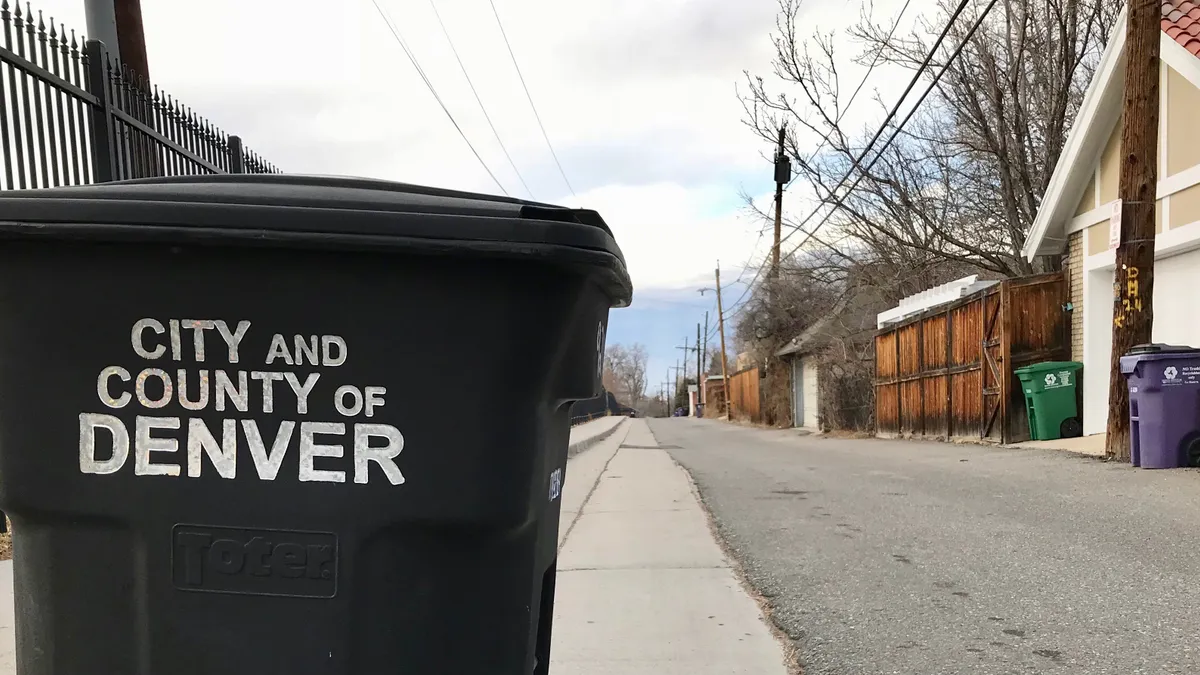Dive Brief:
- Denver Mayor Michael Hancock has committed to moving toward a pay-as-you-throw (PAYT) system for residential collection "within a year." As reported by The Denver Post, this concept was initially backed by Hancock when he took office in 2011.
- Hancock's comments came during a March 21 candidate forum for an upcoming mayoral election, in response to a direct question about backing PAYT. All candidates in attendance supported the concept while also mentioning organics diversion and boosting recycling participation in multi-unit apartment buildings as priorities.
- Denver Solid Waste Management confirmed to the Post that a community input process would still be required and no final decision is expected until 2020. One key piece of this plan would be the expansion of curbside organics collection, which the city will be contributing to with 13 new trucks this year.
Dive Insight:
Denver has set a goal of reaching a 34% recycling rate by 2020 — a nod to the national EPA average, although not directly comparable. Hancock cited the city's current rate of 22% as a sign that activity has increased during his tenure. Denver has been actively taking steps to boost recycling in recent years, including working with the Natural Resources Defense Council on reducing food waste and The Recycling Partnership on curbside recycling education.
Despite these efforts, Hancock's opponents criticized a perceived lack of progress and called for much higher recycling and composting percentages. Denver has also been the subject of ongoing critiques from local groups, including the Colorado Public Interest Research Group and Eco-Cycle, over its stagnant progress on expanding curbside organics service. Landfill tip fees remain very cheap in the state — including at a regional site owned by the city and county of Denver, which has abundant capacity.
Still, Hancock's administration says waste reduction is a priority that’s been a long time coming. The city manages collection for properties with seven or fewer units.
"What we've been doing behind the scenes is working internally to disentangle and to set up the process so that we can move to a pay-as-you-throw [program]. Right now it's an inverted pyramid. We're disincentivizing people to actually compost and recycle, we absolutely understand that," said Hancock during the forum, according to a video posted by The Alliance Center.
The question of income equity also came up — an issue that has stalled similar concepts in cities such as New York — which Hancock said was a priority.
"I do support making sure we can take care of those who can't pay whatever nominal fee there will be as we have done with some other elements within the city," he said.
While the concept of PAYT or similar volume-based cost structures often sparks political debate, it has also become increasingly common in municipalities across the country — including many in Colorado itself. Education, enforcement and access are all key factors, but when organized efficiently many systems have seen proven results when it comes to waste reduction.











